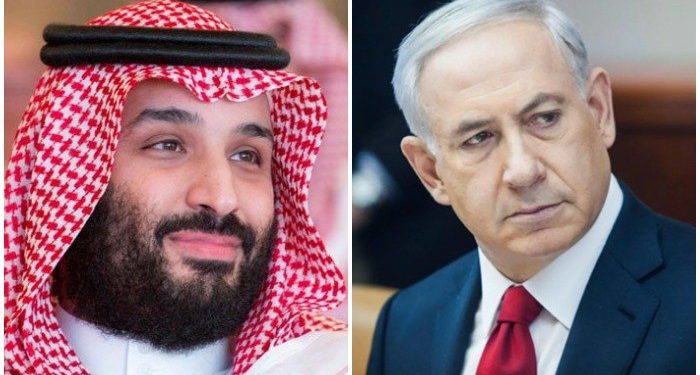The covert rendezvous with Crown Prince Mohammed bin Salman of Saudi Arabia on Monday is a major political and diplomatic victory for Israeli Prime Minister Benjamin Netanyahu coming as it does a little over two months after signing a peace deal with the UAE and Bahrain.
Normalising relations with the Middle East has been a priority for Netanyahu who has long argued that Israel can and should make peace with the Arab world without needing to find a lasting peace settlement with the Palestinians and his recent overtures with the Middle Eastern countries suggest that he may be making all the right moves.
Normalising relations with the UAE and Bahrain was a genuine achievement for the Israelis. Recent months have seen a dramatic change in the diplomatic landscape of the Middle East with US President Donald Trump’s son-in-law Jared Kushner serving as a go-between, linking the Gulf states and Israel. However, the latest meeting has surprised many as Saudi has maintained, until recently, that they would wait for a Palestinian state before any official relationship with Israel.
For such a long time, Israel-Palestinian conflict was the central issue on the global diplomatic agenda. However, of late, the issue has been pushed off the agenda and there is no serious diplomatic impetus to solve the decades-old vexatious issues.
Trump’s policies in the Middle East also favoured the Israelis. From moving the US embassy to Jerusalem to Mike Pompeo’s recent visit to the occupied Golan Heights, every decision of Trump in the Israel-Palestine conflict angered the Palestinians while cheering Israel.
With his latest move, the Israeli prime minister has not only managed to marginalise the Palestinian cause but found an ally against a common enemy – Iran.
Iran held sway across the Middle East and Moslem world and projected itself as the champion of the Moslem cause, a role Saudis have coveted but never quite managed to achieve. Saudis also tried to undermine Iran’s influence in the region but failed to achieve anything concrete so far. Their puny but next-door-neighbour, Yemen, has been a long time ally of Iran.
Meanwhile, tensions between Israel and Iran have increased after President Donald Trump unilaterally pulled the United States out of the Joint Comprehensive Plan of Action— the 2015 accord to wind back Iran’s nuclear program in return for sanctions relief — in 2018.
Netanyahu sees Iran as Israel’s number one enemy. Israel and Iran have been antagonists since the 1980s. But, after the US’ 2003 invasion of Iraq and the formal withdrawal of American troops in 2011, the regional balance of power was broken. This left the Middle East without a clear leader. That created a vacuum that has brought the countries into increasing conflict.
For Netanyahu, who formed a national unity government with rival Benny Gantz after failing to secure a clear election victory, and faces an indictment for bribery, fraud and breach of trust, this is not only a major triumph but will also help him to divert attention within the country from the corruption charges and his government’s failure to effectively tackle the coronavirus crisis.







































